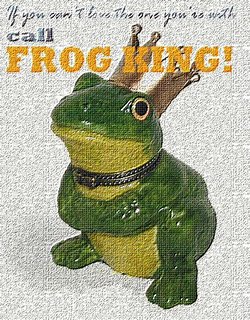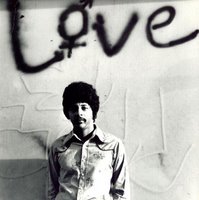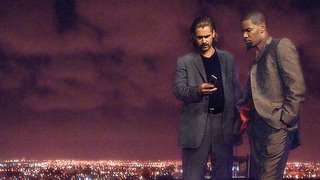 Isn't "deconstruction" an attempt to apply scientific principles to the analysis of language and what it implies?
Isn't "deconstruction" an attempt to apply scientific principles to the analysis of language and what it implies? There is a lot of science - envy among the critics in the arts and humanities, and they've seemed to latched on to the extrapolated language of anthropology and linguistics in order to keep their jobs: there is an effort, in the mission of literature departments, to continue to prove that there is stuff of quantifiable worth to be extracted from the study of novels and poems, and that they in some way adding to body of knowledge.
Somewhere, so far as the criticism has gone in the last half of the century, the link was made with other discourses, which made much of literary study something of a gawky laughing stock: not historians, not scientists, not psychologists, not philosophers, the gamiest of theory wonks could prate on and onward on fields not his own, keeping the tenuous connection between their specialty, fictional accounts of experience, and real time bathos and tragedy obscured with an ever deepening reservoir of jargonized murk.
The result, of course, is an abandonment of criticism and theory's original mission to seek clarity, comprehension. Among the critics who are incapable of giving serviceable interpretations of books they reputedly teach, too many have produced a feeling that literary is as unapproachable to the non specialist as would a technical article in a medical journal.
The post modern critic too often becomes the things they are nominally opposed to: they become priesthood, the place where power is located! Whether Ginsberg or Ashbery are post modernists skirts this issue, not uncommon here; it's more fruitful to trace post modern poetry's influences. Ginsberg is a romantic, sure, but he was one in the 20th century, confronted with mass-media, A bombs, televised unpopular wars, the whole 60s shot, and his response to these accelerated times had to push the hackneyed envelope.
If he trusted his sensibilities to make sense of the world, apart from the mind of God guiding him (the central conceit of the Romantic Movement and its attendant schisms), Ginsberg had to expand his poetic line, blur crucial distinctions about well-rendered introspection, and essentially clear the field for further innovation.
Ashbery, in turn, developed a secret language, a self-addressing voice that managed not reveal much of the soul of the poet, but did much to reveal the writer's mind engaged with the world, musing in elegiac lines of things, their places in the scheme, their displacements by other things--this is the Supreme Fiction of Wallace Stevens, and it sought to bring harmony to a sphere of unknowable phenomenon.
Both Ginsberg and Ashbery, coming from Romanticism and moving straight ahead into the Modernists' obsession with inventing new forms from old to gain new ideas about a world that won't yield itself to the individual mind, quite cannily opened the territory for the poets who would be called post-modern poets, wh0 would be, I think, anyone from Ron Silliman, Rae Armentrout or Bob Perelman of the Language school, to the Nuyorican poets, the slam movement, rap and hip hop, and even the largely odious New Formalist group.
Post modernism, it appears, comes in as many stripes and hues and apologies as Romanticism, Modernism, or even classicism, and there is no hard rule that states that one cannot be a post modern Romantic. It's a reasonable distinction.
Though a writer can bring all their resources to bear when they write, a certified grounding in philosophy isn't required to write fiction and poetry.
The learning doesn't hurt the work if the writer is possessed of demonstrable inspiration, or genius, if you will, but what is essentially an act of the imagination is not required to furnish it's own critical apparatus. DeLillo, for example, can parse his own imagery and subject them to a cold analytical eye, and creating a haunting poetry about the signifiers fading resonance in a reality that never stops blinking, but his genius is rare. John Barth is very clever, some times brilliant in his deployment of knowing literary conceits in his work, best, I think, in the Floating Opera, End of the Road and The Sot Weed Factor, and it can also be said, though, that despite the "special learning" to attain the rarified information that was needed to construct these novels, Barth wrote the works to operate as novels, as entertainments, first before all, not as formal arguments against prior literary movements.
The process is as instinctual as it is deliberate, I think, as is good criticism, which has an obligation to interpret the books in an activity separate from the novel. Unbelievable to some lit-critters anxious to narrow the range of subject options , not everything that's written, published and which finds an audience it services for either entertainment or instruction can be discussed with the same parsing frameworks.
The artist DOESN'T choose his influences, rather, he finds himself chosen by them.
Too flat an absolute a statement to be useful here: Bloom's refinement of a dialectical model to describe, in sweeping, how influence forms new writing is spectacular, but he over reaches, and over states his case with an insistence that influences choose the writer rather than the other way around. This is a deconstructive reversal that's cuter than it is precise. It's half the tale.
Better to have it half and half: the writer certainly exercises choice so far as who they opt to read through their lifetime, and makes judgments based on their reading as to who matters more than others in the forming of an idiosyncratic aesthetic. The writer, as reader, is not a passive agent here.
A writer "being chosen" by their influences makes more sense, I think, when he place the statement at the moment when the writer is actually writing, when inspiration, imagination, and whatever other resources a writer has at their behest combine, churn, swirl, and combine in ways during the drafting that could result in interesting, original work.
Process is a word that's horribly abused and bled of meaning these days, but here it's appropriate. Creative process is a strange ritual unique to each writer, an idiosyncratic set of habits that are the basis of the discipline needed for a writer to actually stay seated long enough to produce and bring the work through all stages.
It's the mysterious clutch of protocols that unleash the influences into the creative roil, and it's here, during these churning, erupting, fever pitched sessions where a writer looses the ability to control the influences about them, large and small, whether from their personal reading, or from the larger culture: it's here where the writer is literally "chosen" by the influences and styles about them and literally have their style defined and guided. So it seems to me, anyway. For the force of the unconscious in the work, of course: memories emerge, scenarios spontaneously form, and arcs are drafted and written out to link disparate sketches on a narrative spine that rapidly becomes a fleshed-out work.
Of course.
But to get to the point where writing actually commences, I believe, begins with some conscious choices the writer makes in the world that's given to them: deciding what has value among the given--whatever we mean by that-- constitutes choice. What happens beyond that is what becomes problematic, and subject to niggling disagreement. But conscious human agency is not
How could the beliefs be useful if they weren't true? I could have many false beliefs that are coherent, but of what use would they be?
The test of any theory is in how it works, and the gauge for how it works is in whether it's employment is of observable benefit to others, i.e., does it give some one and their community a coherent and workable structure to live life, to promote what would locally be defined as the Greater Good, and likewise provide a means for helping a community absorb change, how however and why ever it happens. The test of whether a theory is useful, if I remember my James, is whether such a methodology leads one to a truth that's germane in situ.
The usefulness of a theory is judged by how it side steps the confounding and conflating "proofs" of what constitutes Truth, with the big "t", and instead enables one to find something that works in mending the immediate situation.
No one seems to want to deal with Lost in the Funhouse, which, casting an eye over this thread, I find ironic.
Speaking for myself, Lost in the Funhouse is nicely written gripe in which Barth, flowing of pen, voices a buried resentment against his own reading habits, a collection that's kind of dull: he voices the complaint against the dreary optimism of modernism, the same dull complaints, in fact, and yet wishes that had been him, rather than Joyce or Faulkner at the key moments of break-through novel writing: a Bloomian moment with his career, with his writing desperately bloated books, his "literature of exhaustion" to demonstrate how much more radical he would have been had he the power to intervene in recent literary history, and also a classic example of the School of Resentment.
Barth, I think, resents his teachers, or at least writes like he does. His work, though important in the postmodern genre, is among the dullest. Manuals for changing light bulbs could exact more excitement. The Floating Opera, though, is a masterpiece: brief, funny, unusual, unselfconscious in it's re-formation of the novel.
Allen Ginsberg, speaking of a conversation he had with his mentor William Carlos Williams, gave a definition of Modernist perception as being that "...the thing itself is its own adequate symbol..." Further, there is the strong suggestion that there is no God in this scheme, that the "thing" being perceived did not require an ideal type, or any other kind of Ideal superstructure in order to exist, to be. Ginsberg, and later poet/critic Jerome Rothenberg, gave a suggestion that this was Western writing's back-door approach toward more open structures, to decidedly unsystematized philosophies, witnessed in the Beat flirtations with Zen. This brings us knocking at the door of an extended Modernist approach--a style in which avant-garde procedure became an ironic protocol to literary writing--that became, in some critical finessing, post modernism.










